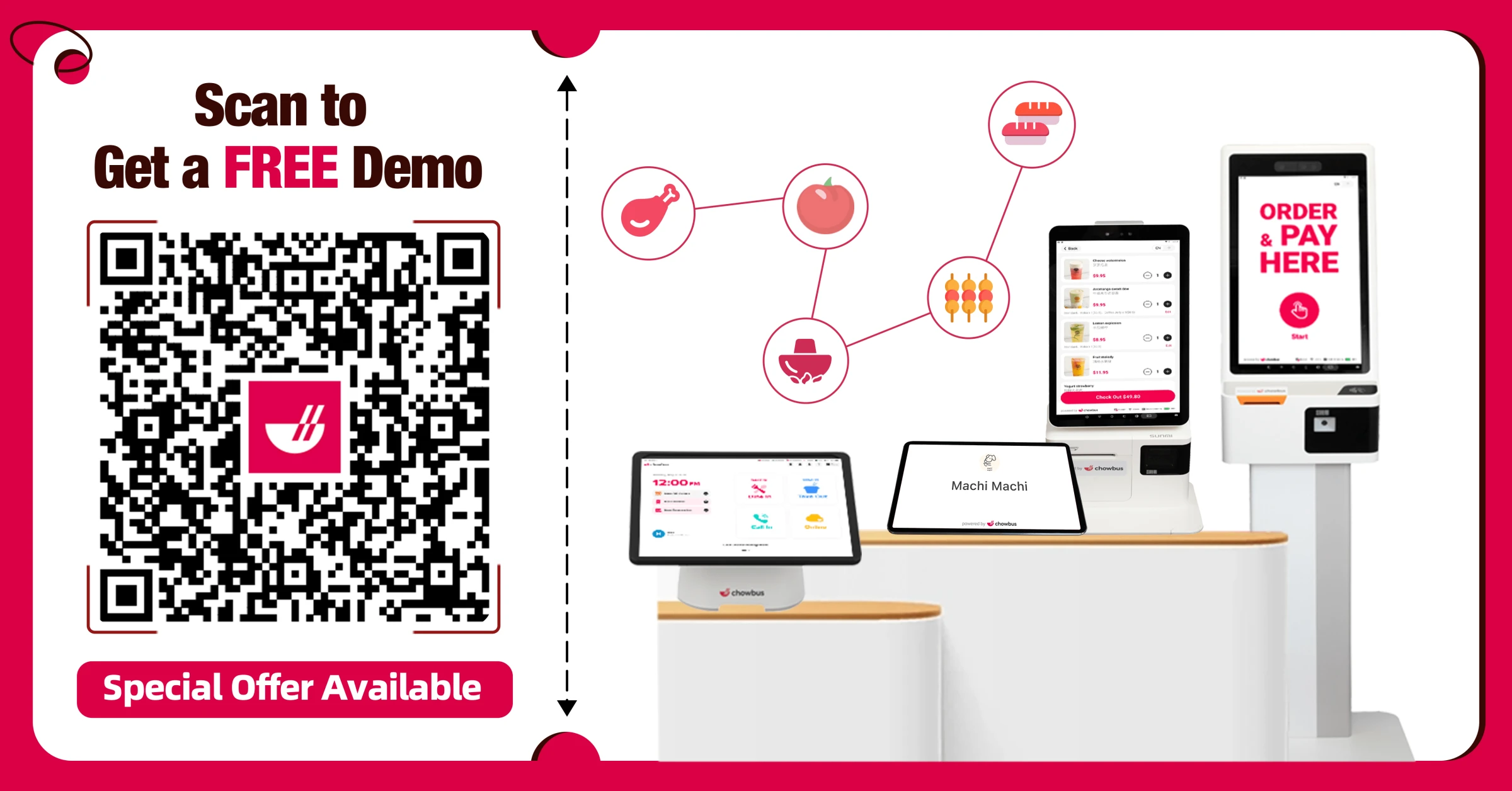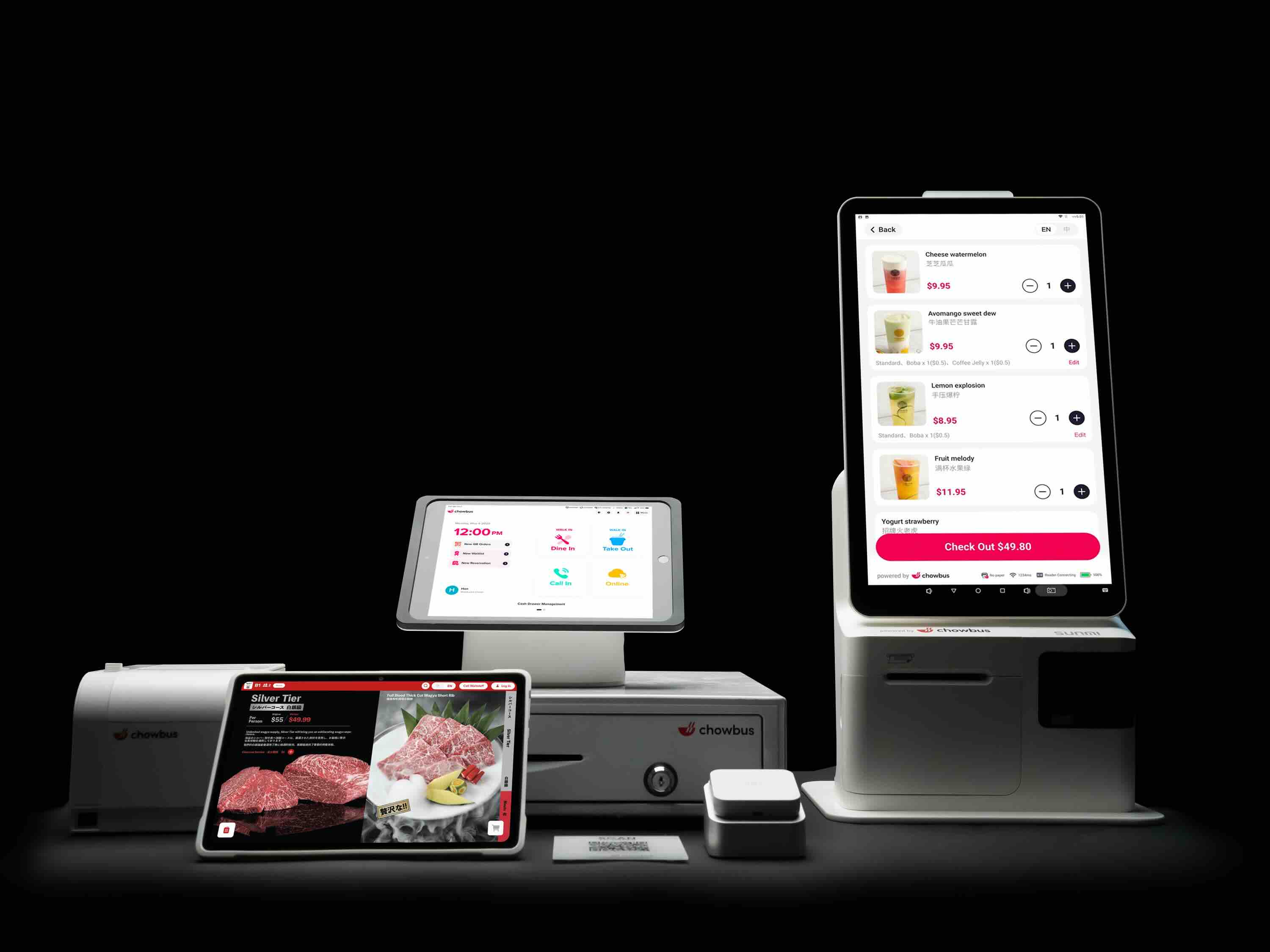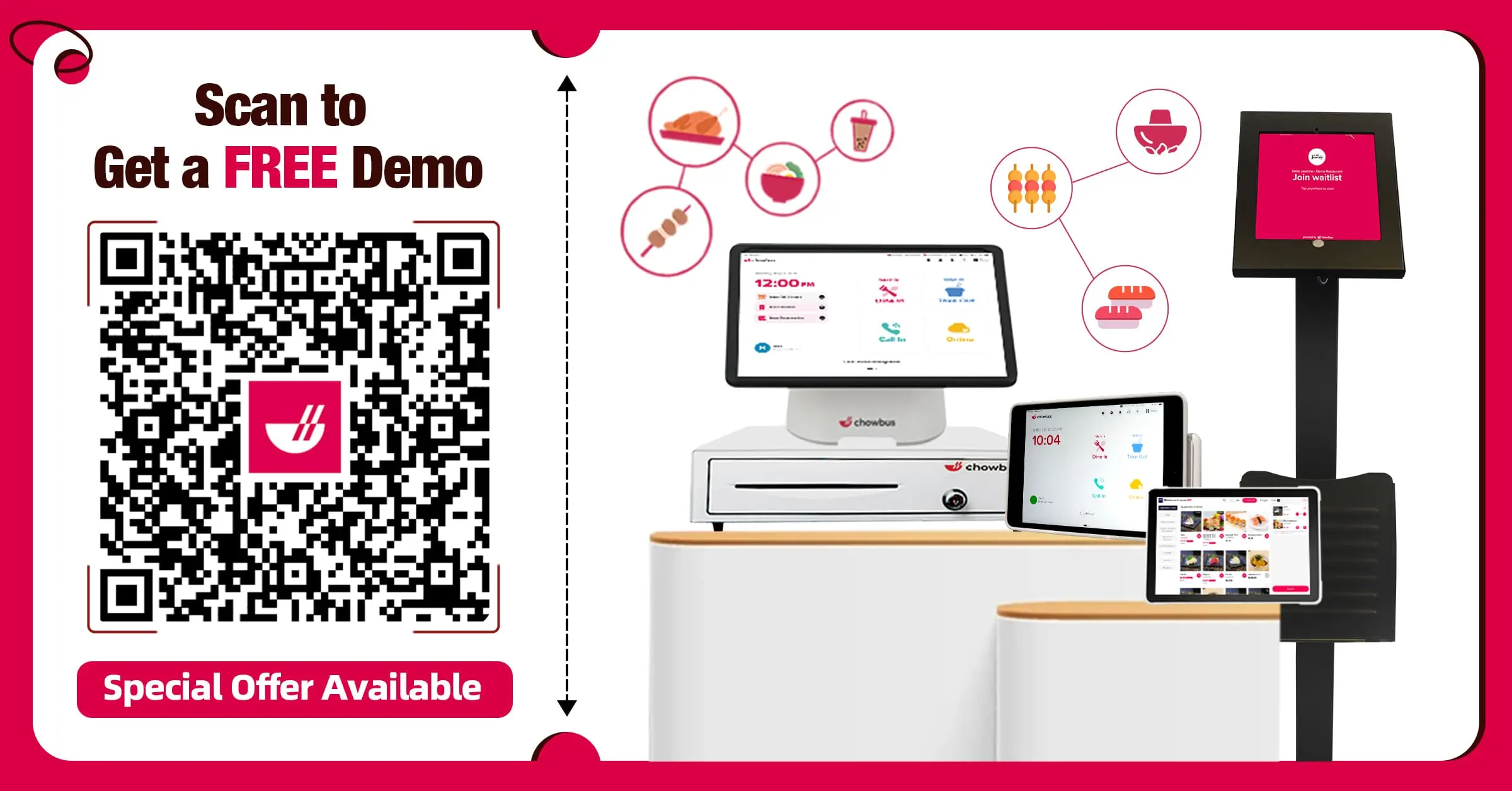Offline POS System: Maximizing Efficiency with Hybrid POS

Offline POS Systems have become a fundamental component in modern restaurant management, addressing the unique needs of restaurant owners, whether they're seasoned veterans or in the early stages of setting up their dream eatery.
In an era where connectivity issues can hamper sales and customer experience, understanding the nuances of offline POS systems and hybrid POS solutions is more critical than ever.
This blog post aims to shed light on these innovative systems, compare them with traditional POS setups, and illustrate why they are indispensable for your restaurant business.

What is an Offline POS System?
An offline POS system operates as a sales processing platform that doesn't rely on a continuous internet connection. Unlike cloud-based POS systems that need constant internet access, offline POS systems ensure continuous sales operations even during connectivity disruptions. This capability is vital for maintaining seamless service in restaurants, especially in areas with unstable internet connections.
What is a Hybrid POS?
A Hybrid POS System, an innovative blend of cloud-based and traditional POS functionalities, is emerging as a go-to solution for modern restaurants. Essentially, it marries the best aspects of cloud-based systems – like real-time data access and ease of use – with the steadfast reliability of legacy POS systems.
By seamlessly switching to an offline mode, this dual-natured system ensures that your restaurant’s sales and service processes are uninterrupted, even in the face of internet outages. The hybrid approach not only enhances operational efficiency but also fortifies data security, a crucial factor for any business.
Hybrid vs. Traditional POS
The evolution of POS systems has been significant. From the traditional setups that relied heavily on on-site hardware and software to modern cloud-based solutions, each has had its strengths and challenges. Hybrid POS systems emerge as a middle ground, integrating the reliability of traditional POS with the cloud's accessibility and versatility.
Key Differences Between Traditional and Hybrid POS Systems
Hardware Dependency: Traditional POS systems rely heavily on local servers and specific hardware, making them less flexible. On the other hand, hybrid POS systems leverage local hardware for essential functions but primarily operate via cloud-based processing and data storage.
Software and Data Accessibility: Traditional systems house their software and data onsite, limiting access. Hybrid POS solutions use cloud-based software, offering enhanced accessibility from any internet-connected device.
System Management and Maintenance: Manual updates and troubleshooting are the norms of traditional POS. Hybrid systems simplify this with remote management capabilities, making maintenance more efficient.
Cost Effectiveness: Initial investment in traditional POS systems can be steep due to hardware and software costs. Hybrid POS solutions typically follow a subscription model, reducing upfront expenses.
Customizability and Scalability: Adapting traditional POS systems to new requirements can be cumbersome and expensive. Hybrid POS systems offer greater flexibility, allowing easy customization and scalability through cloud-based configurations.
Hybrid POS systems represent the future of restaurant management. By blending the strengths of traditional and cloud-based systems, they offer a versatile, cost-effective, and scalable solution. Whether you’re planning to open a new restaurant or considering an upgrade, exploring hybrid POS solutions could be the key to enhancing your operational efficiency and customer satisfaction.
How Does POS Offline Mode Work?
POS systems, essential in today’s restaurant business, typically include an “Offline Mode.” This feature ensures your restaurant can continue serving customers smoothly, even during internet outages. Let’s dive into how this mode functions:
1. Local Data Storage:
In offline mode, your POS system shifts from cloud-based to local data storage. Transactions and essential data are stored on your device, ensuring continuous operations without relying on internet connectivity.
2. Functionality in Offline Mode:
Although offline, your POS system retains key functionalities. You can process sales, print receipts, and handle cash transactions effortlessly. However, features like real-time inventory updates might be temporarily unavailable.
3. Handling Transactions:
For credit card transactions, offline POS systems either store card details securely to process later or use 'store and forward' technology, ensuring encrypted, secure data handling until online processing is feasible.
4. Data Synchronization:
Once online, the system seamlessly updates cloud data with all locally stored transactions, customer details, and inventory changes.
5. Security in Offline Mode:
With sensitive data involved, offline POS software emphasizes robust security measures, including encryption and secure data storage, to safeguard against potential breaches.
6. Backup and Recovery:
Reliable offline POS solutions have backup and recovery systems to prevent data loss, ensuring business continuity even in unexpected scenarios.
7. Manual Processes:
In prolonged offline periods, your system might support manual overrides, like physical ledgers or traditional card swiping, as a fail-safe.
Understanding your hybrid POS system's offline functionalities and preparing for occasional internet downtimes can greatly enhance your restaurant's resilience and customer service quality.
Key Features of an Offline POS System
Understanding the key features of an offline POS system is crucial for restaurant owners seeking to enhance operational efficiency. These systems, operating effectively without a constant internet connection, offer several compelling features:
1. Efficient Order Management
The core of an offline POS system is its ability to create and manage customer orders smoothly. The interface is designed for swift and intuitive order entry, ensuring customer service remains fast and efficient.
2. Seamless Kitchen Communication
Once an order is entered, it's automatically relayed to the kitchen printer. This feature ensures a seamless flow of communication between the front-house staff and the kitchen, streamlining the order preparation process.
3. Versatile Payment Processing
In the absence of internet connectivity, offline POS systems shine by accepting various payment forms. From cash to credit and debit cards, these systems ensure that all customer preferences are accommodated, keeping the checkout process smooth and uninterrupted.
4. Instant Receipt Generation
Post-payment, offline POS systems can quickly generate detailed customer receipts. These receipts typically encompass all transaction elements, including purchased items, total cost, and applicable taxes or fees.
5. Efficient Tip Collection
For establishments where tipping is customary, these systems come equipped to handle tip processing. They facilitate both card-based tip prompts and cash tip tracking, ensuring accurate tip collection and record-keeping.
Each of these features is integral to maintaining continuous and efficient restaurant operations, especially in scenarios where internet connectivity is a challenge. The resilience and reliability offered by an offline POS system are invaluable in ensuring uninterrupted service and customer satisfaction in the fast-paced world of restaurant business.
Why Choose a Restaurant POS System with POS Offline Mode Capabilities
In the fast-paced restaurant industry, an interruption in service can be costly. Here's why an offline POS system, or a hybrid POS solution, is essential:
Uninterrupted Service: Internet outages can bring a restaurant to a standstill, but not with a POS system offline. Even without an internet connection, your restaurant can seamlessly take orders, process payments, and manage inventory. This capability is vital to avoid revenue loss and maintain customer satisfaction.
Peace of Mind: Having a hybrid POS system in place offers reassurance. Knowing that your operations can continue smoothly in the event of internet issues reduces stress and uncertainty for both you and your team.
Regulatory Compliance: Certain regions mandate contingency plans for businesses like restaurants. A hybrid POS solution ensures compliance with such regulations, particularly in emergencies like power outages.
A hybrid POS system is essential for any restaurant aiming for operational excellence. Its ability to function in both online and offline modes ensures that your business stays resilient, compliant, and customer-focused, no matter what technological challenges arise.
Ready to Make the Switch?
Discover the power of uninterrupted service with Chowbus POS! Our state-of-the-art restaurant POS system is designed to keep your business running smoothly, even when the internet isn't. With our unique offline mode capabilities, you can ensure continuous sales operations, handle all types of payments, and maintain seamless service — all without relying on a constant internet connection.
Ready to elevate your restaurant's efficiency and resilience? Book a free demo or consultation today and explore how Chowbus POS can transform your restaurant management experience. Don't let connectivity issues disrupt your business – switch to Chowbus POS for peace of mind and exceptional service, anytime, anywhere.

Frequently Asked Questions About Hybrid POS System
Embarking on the journey of understanding offline POS systems, this FAQ section delves into key queries regarding their usage, functionality, and transaction processes without relying on internet connectivity.
Can I Use POS Without the Internet?
You can use a Point of Sale (POS) system without an internet connection. Many modern POS systems are designed to operate offline, storing transactions locally and then syncing them once an internet connection is available.
However, certain functionalities like real-time inventory updates, cloud-based data access, and online payment processing may only be available with an active Internet connection. For uninterrupted service, it’s advisable to use a POS system that offers a reliable offline mode.
What POS System Works Offline?
A POS (Point of Sale) system that works offline is one that can process transactions and manage sales data without needing a constant internet connection. For businesses like restaurants, this feature is crucial for uninterrupted operations.
Chowbus, for example, offers an offline mode in its POS system. This allows businesses to continue taking orders and processing payments even during internet outages, ensuring that sales and customer service are not disrupted. Data collected offline is then synchronized with the cloud once an internet connection is re-established.
What is an Offline POS Transaction?
An Offline POS Transaction occurs when a Point of Sale (POS) terminal processes a payment without a real-time internet connection. In such cases, the POS terminal temporarily stores the transaction details and processes the payment later, once the internet connection is re-established. This feature allows for uninterrupted sales and payment processing even in locations with inconsistent internet access or during network outages.

Recommended Articles:
Restaurant POS Integration: Top 9 Must-Haves for Restaurants
On-Premise vs Off-Premise: What's Right for Your Restaurant?
Multi Store POS: The Best Multi Location POS for Restaurants
Best Restaurant Tablet Ordering & Tableside Ordering Systems
The Best Full Service Restaurant POS System: 12 Key Features
Quick Service POS System: Best Quick Service Restaurant POS System
Pizza POS: Unveiling the Best Pizza POS System for Pizzerias
Multi Store POS: The Best Multi Location POS for Restaurants